Botanical name : Chenopodium quinoa
Synonyms :
Common name : Quinoa
Easy for seed saving
Lifecycle: Annual
Pollination: self-pollinated with possible wind-pollination
Mating system: Perfect flowers and fruiting only flowers, self-fertile.
Suggested spacing: Same as for eating production
Seed specific requirements: None
Isolation distance: 30 metres
Population size: 10 or more plants
Seed maturity: Seed is mature when the heads start to go brown. Seed falling from the heads is a clear indicator.
Processing method: Dry threshing and winnowing
Expected seed viability: 5 years
Images
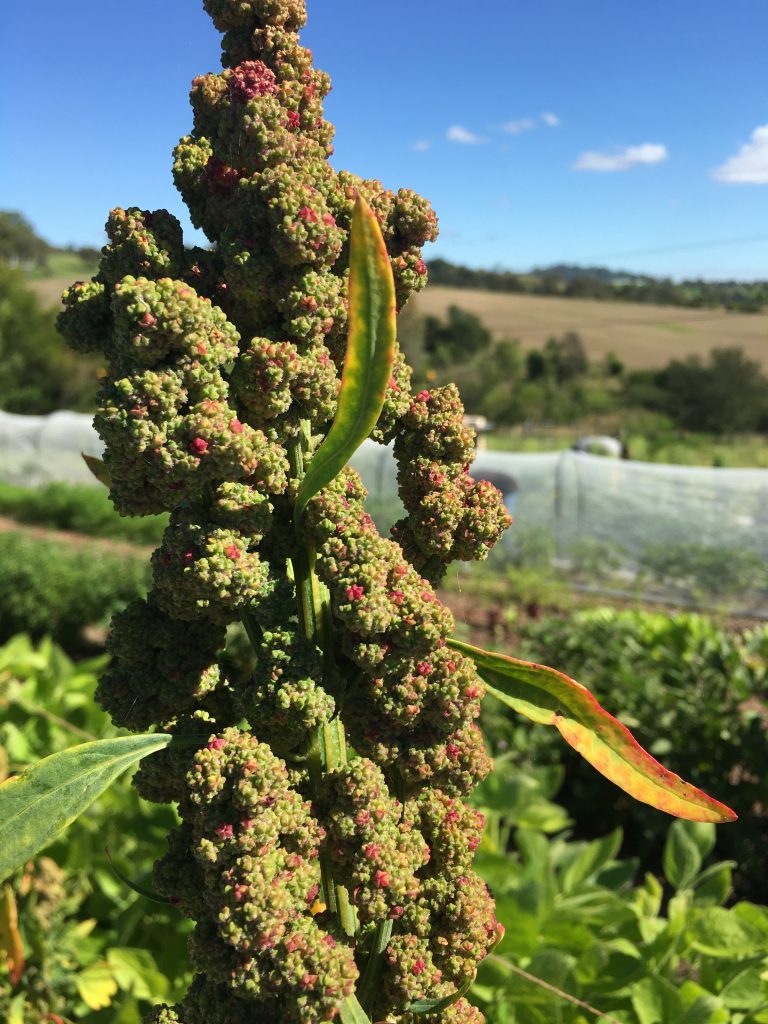
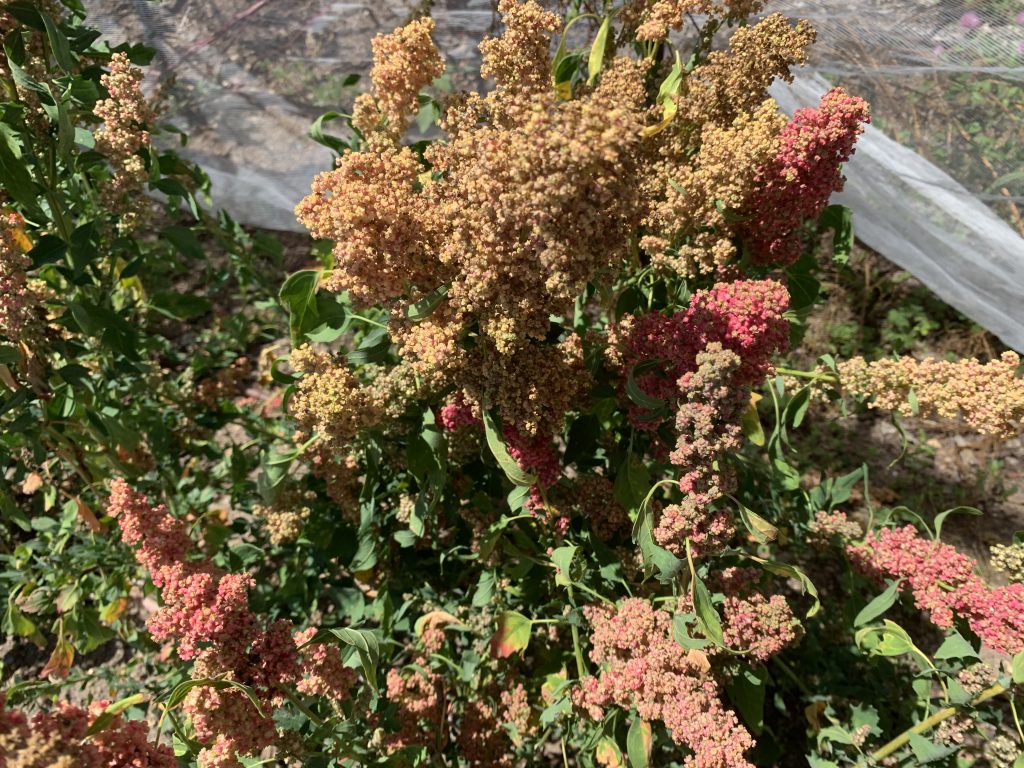
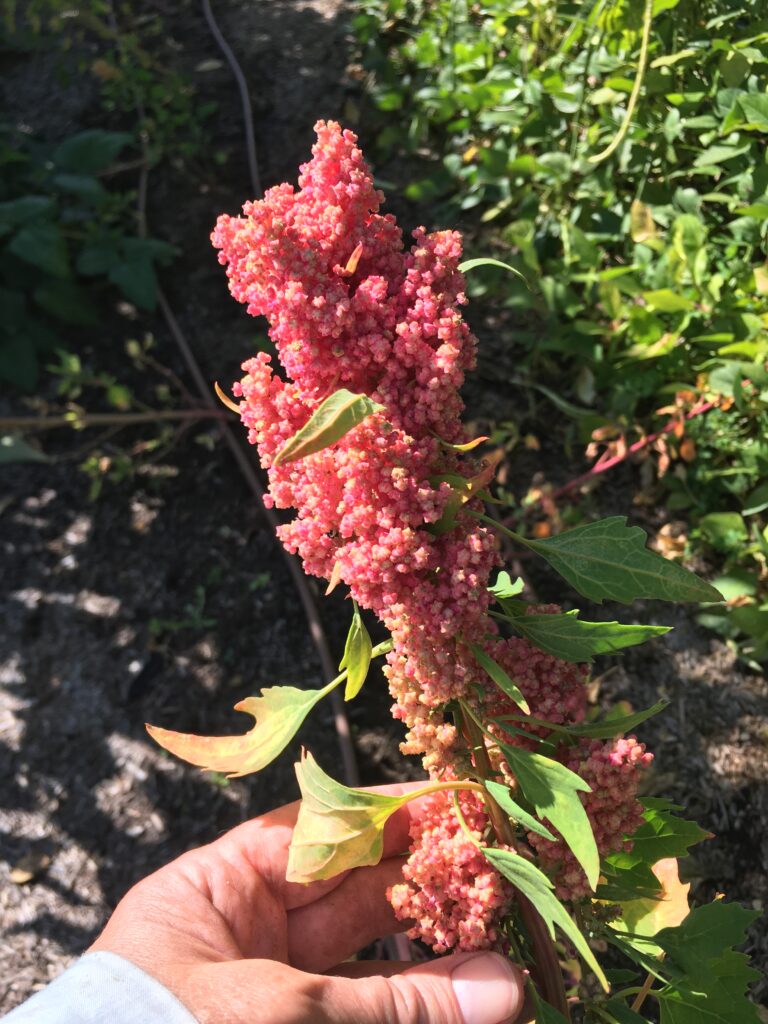
Growing for seed
Quinoa seed is grown in exactly the same way as the crop is grown for grain. There is some potential for cross-pollination between varieties so they should be kept at least 30 metres apart to avoid this.
Selection
Quinoa varieties are distinguished by plant form, colour of the flower heads and seed colour. Plants that so not show the required traits for that variety should be removed as early as possible from the growing pool.
Harvest
Seed is mature when the heads start to go brown. Seed falling from the heads is a clear indicator of seed maturity. Like amaranth, it can be useful to take a bucket or other container to the crop and try shaking or knocking the seed head over the bucket. If seed falls easily into the bucket, then it is time to harvest.
It is important to harvest mature seed heads before rain to avoid damage to the seeds.
Processing
Rubbing seed heads between gloved hands or on a mesh will dislodge any seeds that have not fallen from the heads during drying.
As the seeds are very light it can be difficult to separate them from the chaff. Water winnowing can be used successfully with quinoa. The seed material is put into copious amounts of water, and the viable seed will drop to the bottom while the unwanted material will float. The floating material can be decanted. The process can be repeated until only clean seed remains in the bottom of the container. The quinoa seed should be promptly spread out to dry so that it does not begin to germinate because of the moisture. Care should be taken to make sure the seed is very dry before it is stored in an airtight container.
Dried seed can be put into the freezer for 2 to 3 days to ensure any insects and their eggs are killed before long term storage.
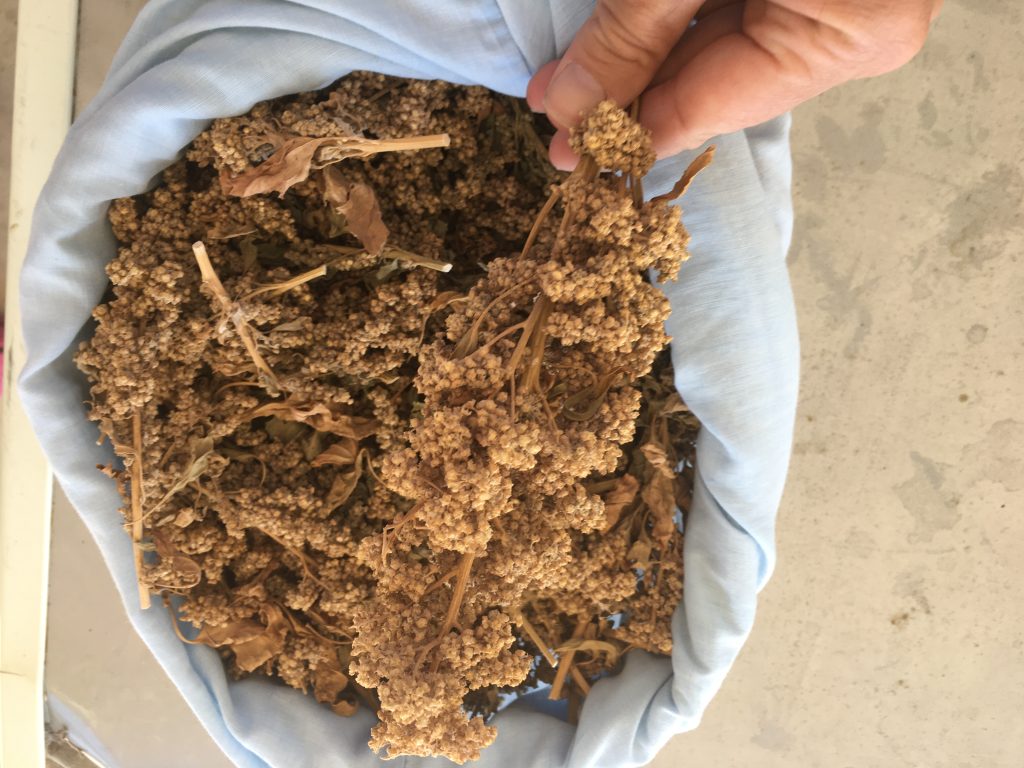
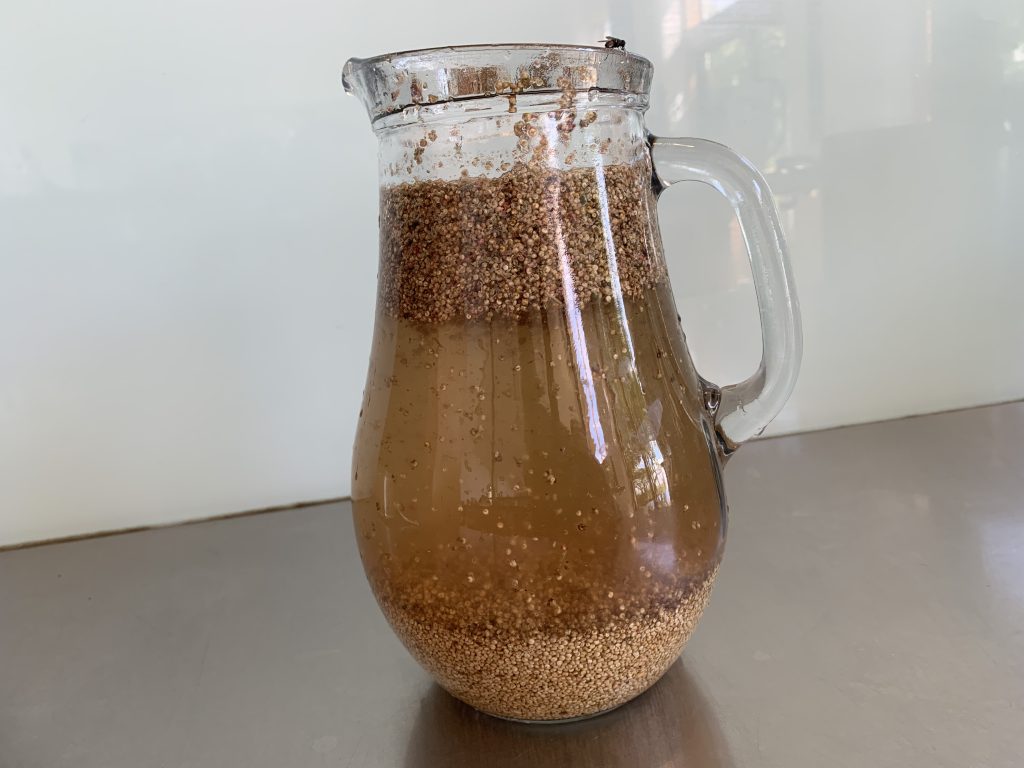
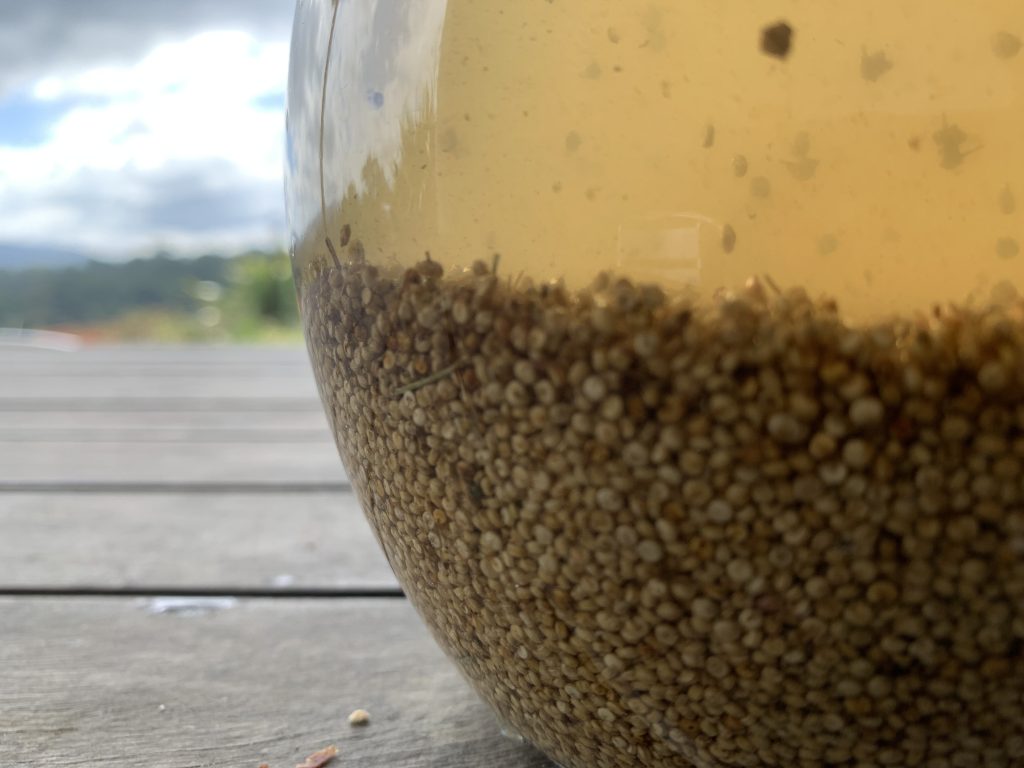
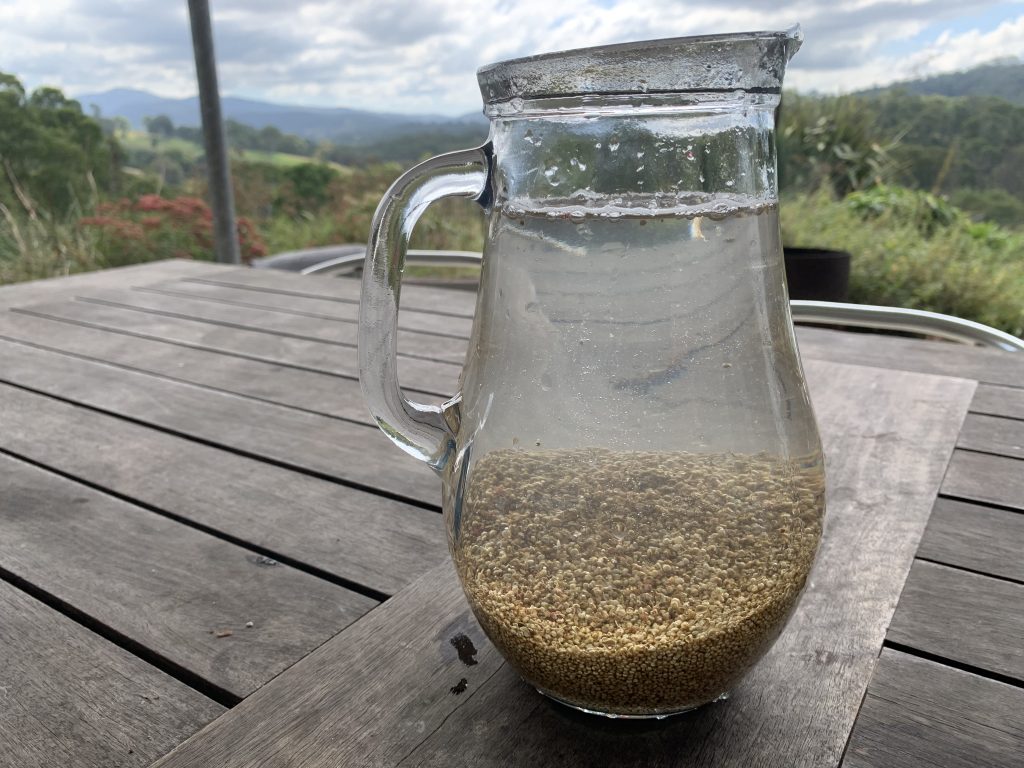
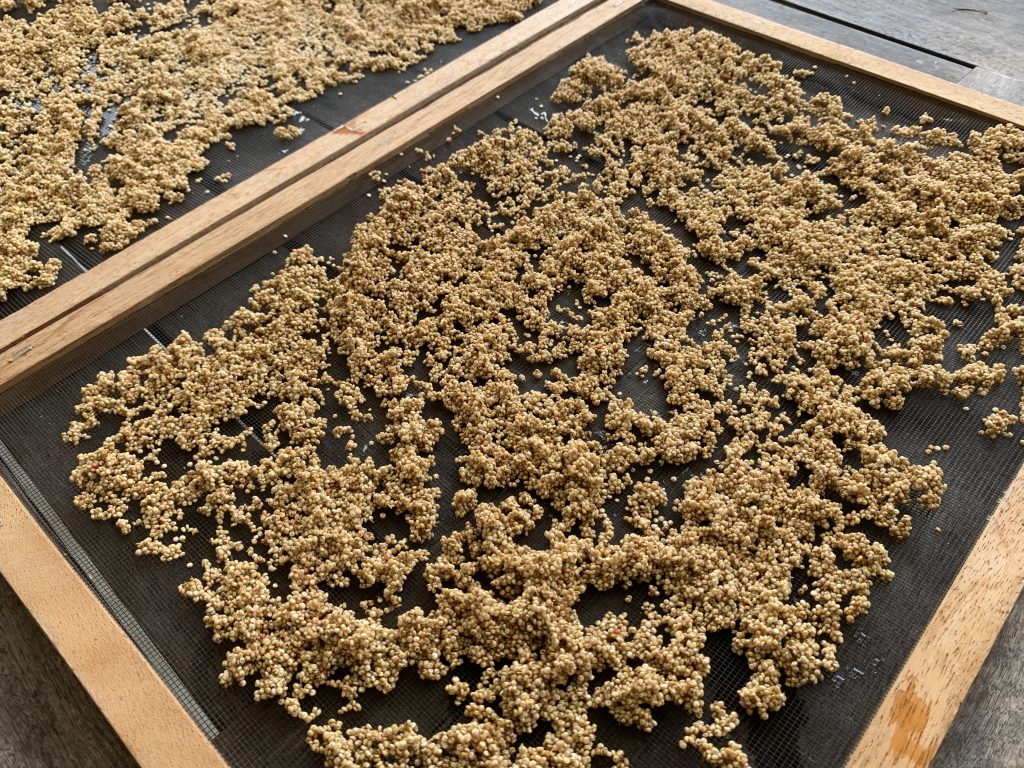
Contributors
Liz Worth, Nellie Pryke
